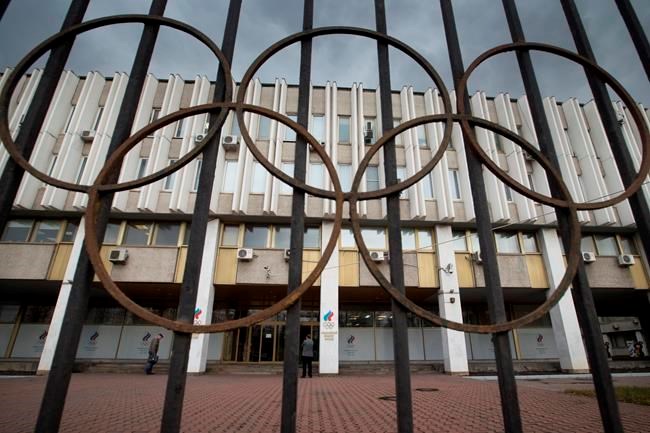Track and field leaders signaled Thursday that it will be nearly impossible for Russian and Belarusian athletes to compete in that sport at the Paris Olympics next year if the war in Ukraine continues.
The World Athletics Council kept its ban on Russian athletes in international events in place “for the foreseeable future," a move that goes directly against the International Olympic Committee's efforts to find a way for Russian athletes to compete as neutrals in upcoming events.
World Athletics will form a working group to determine under what conditions Russians might return to international competition, but for now, there is no apparent pathway.
“The death and destruction we have seen in Ukraine over the past year, including the deaths of some 185 athletes, have only hardened my resolve on this matter,” said World Athletics President Sebastian Coe, who has been the most outspoken sports leader on the topic since Russia's invasion.
The move came on the same day World Athletics finally lifted a seven-year suspension of Russia's track federation for a doping scandal that dates back a decade.
Though the federation is back in good standing so long as it adheres to nearly three dozen “special conditions,” that move did nothing to change the reality that Russians will not be allowed at track meets for at least several months, if not years.
Coe said he knows this policy will not be popular at the IOC meetings he is attending next week.
“There will be plenty of opportunities” to discuss the topic, Coe said. “But I think you can probably conclude the IOC is not in any doubt about where I sit on that issue.”
Russian reaction to the World Athletics' decision was predictably outraged. Sports minister Oleg Matytsin referenced a speech IOC President Thomas Bach gave this week reiterating his position.
“We consider these politicized restrictions unacceptable,” Matytsin said. "The Olympic Games must remain neutral, and international federations must give all of the strongest athletes in their sport the right to compete.”
Coe said decisions coming out of the doping scandal have left it up to international sports federations (IFs) to determine eligibility for athletes at the Olympics. World Athletics took the toughest stance of all sports when they were allowing Russians back into the games. During the seven-year ban of the Russian track federation, only a handful of athletes were ever allowed into world and Olympic track competitions.
The sport is taking the same tact regarding the war. While some IFs are following the IOC's lead and trying to find ways for Russians who meet certain, still-unspecified criteria regarding neutrality to qualify for Paris — namely, by bypassing events in Europe, where Russia was a traditional competitor, and heading to qualifiers in Asia — Coe said Russians were banned from qualifying events in track.
By itself, that's not a huge problem — most spots in track and field are allocated at Olympic trials in individual countries — but ultimately, World Athletics is expected to be able to control the list of entrants for this year's worlds in Hungary and next year's Olympics in France.
“There's no ambiguity about it,” Coe said. “The primacy for the decision around eligibility rests with the international federation.”
All of this pushed what should have been big news —the official end of Russia's role as a doping pariah — down a notch. Barring a drastic shift, either in the war or the World Athletics policy, the country is still not expected to be a presence at the track meet in Paris.
“On the basis of what we know now, we're very clear that this is not the right moment,” Coe said.
___
AP sports: https://apnews.com/hub/sports and https://twitter.com/AP_Sports
Eddie Pells, The Associated Press



